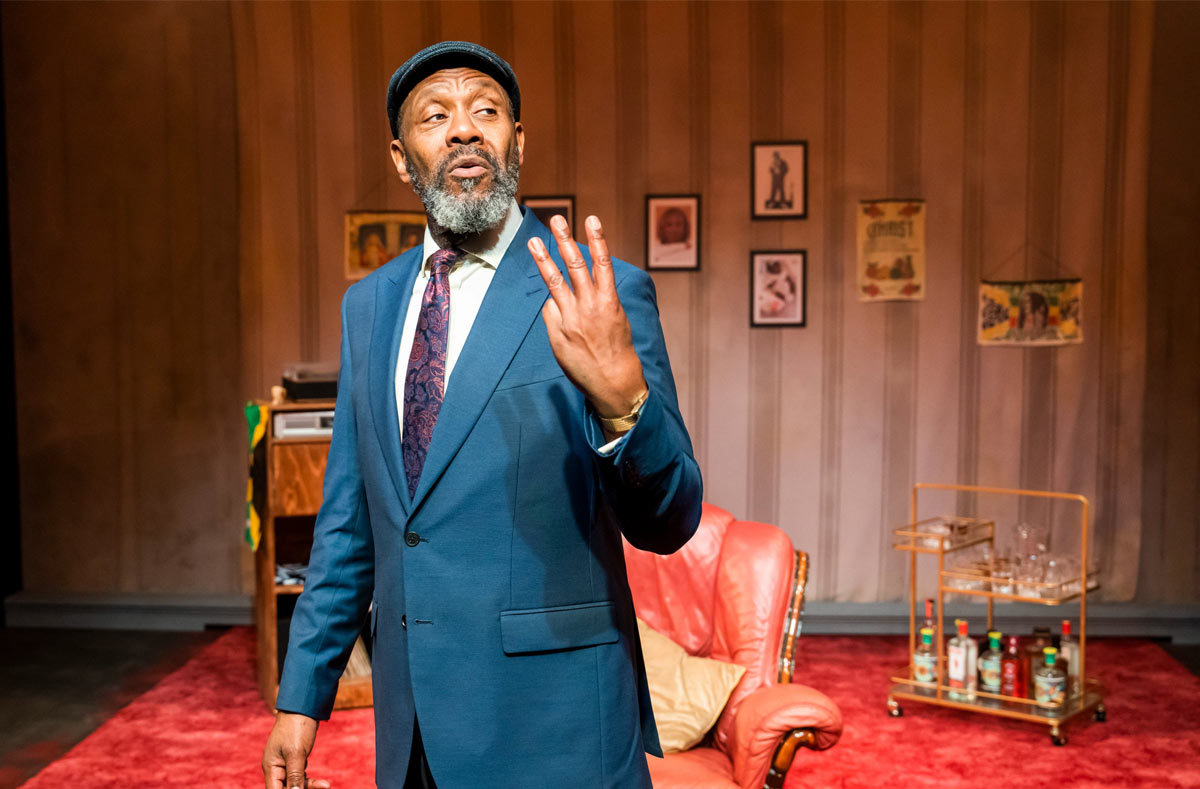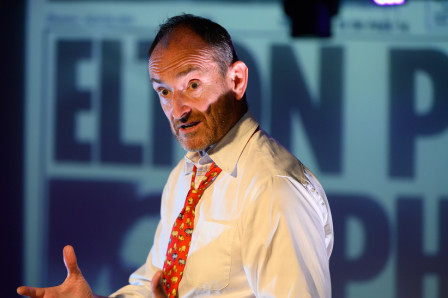Review: AUGUST IN ENGLAND at Bush Theatre
Sir Lenny Henry tackles a sensitive subject close to his heart - the Windrush generation / scandal / on-going inequality / reparation doldrums. When it comes to nomenclature, pick your poison, because most of the sorry saga (like Grenfell and others) is precisely that — a poisonous stain on a nation which should have approached the matter of racial and social integration with compassion and honesty instead of treating its naturalised citizens as unwanted, expendable criminals.
 Sir Lenny Henry as August in August in England at the Bush Theatre. Photography by Tristram Kenton
Sir Lenny Henry as August in August in England at the Bush Theatre. Photography by Tristram Kenton
Henry, (who this reviewer can joyously recall buffooning as a thoroughly likeable kids’ TV comic on Tiswas) has since the 1970s carved-out for himself something of niche position on the shelf of beloved National Treasures. This one-man play, currently at the Bush Theatre marks his playwriting debut and in the main, draws on his comedic ability to convey thickly-sketched characters from the rich community and familial culture of his roots growing-up in the West Midlands in a Jamaican family.
Co-directed by Lynette Linton and Daniel Bailey (curious, given there are no dance routines to choreograph or a massive cast to position) August Henderson’s narrative soliloquy is part stand-up routine, part sitcom, part docu-drama as it transitions from Henry’s trademark delivery of in-jokes and audience-directed asides (line, beat, pause, glance, wry grin), through dramatic life events and onto the harrowing experience of being identified as an illegal alien with no rights to remain, forced separation from children and loved ones and threatened deportation from the country which has been home for over half a century.
As August, Henry’s dialogue flits between patois and Brummie as he recounts hilarious characters to which the audience (largely black and familiar with the stereotypes) reacted appreciatively and enthusiastically on press night. In many ways, the audible reactions to the storytelling is a comedian’s dream and ensures engagement at the intimate venue where seating is ranged on 3 sides of the playing area.
Carefully lulling patrons with comedy characters and storytelling is a neat device, broken periodically by unexplained and jarring projections of a man who is clearly distressed and in an interrogation cell. Initially, these interruptions seem at odds with the cheery recollections, but their appearance is a prelude of what is to come. When finally delivered, it’s an unsettling moment for anyone who imagined they were just coming for an evening with funnyman Lenny Henry. As the auditorium darkens, the back projector screen show interviews with 3 stoic individuals whose lives were turned upside down by the introduction of Hostile Environment legislation after decades of living, working, paying taxes, raising families and making a home in the UK. Finding an official document for every year lived in the country since arriving on your parent’s passport at the age of 8, would be a tall order for even a meticulous archivist and was cruelly designed to punish those it impacted (through the loss of right to work, bank accounts, driving licences etc). Yes, we should all be angry (as Henry has said publicly), at the targeted removal of rights and citizenship from innocent contributors to our nation. It was racism in its ugliest form and deserved to be resisted and challenged — which is exactly what Lenny Henry has done, in the best way he knows how.
In partnership with the Windrush 75 Network, the production is offering 750 free tickets to Windrush generation seniors from across the country (search online for details).
Latest News

 Beatrice Penny-Touré to join West End production of THE PHANTOM OF THE OPERA
6 February 2026 at 13:59
Beatrice Penny-Touré to join West End production of THE PHANTOM OF THE OPERA
6 February 2026 at 13:59

 Initial cast and creative team for ROSIE A NEW MUSICAL West End premiere concert
6 February 2026 at 10:02
Initial cast and creative team for ROSIE A NEW MUSICAL West End premiere concert
6 February 2026 at 10:02

 Review: MONSTERING THE ROCKETMAN at Arcola Theatre
6 February 2026 at 09:01
Review: MONSTERING THE ROCKETMAN at Arcola Theatre
6 February 2026 at 09:01

 HERE THERE ARE BLUEBERRIES at Stratford East - First look images released
5 February 2026 at 15:35
HERE THERE ARE BLUEBERRIES at Stratford East - First look images released
5 February 2026 at 15:35